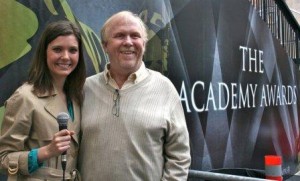STEVE FINLY
Interview
Steve Finly is an award-winning screenwriter who has worked in the Hollywood media industry for decades.
Here he talks about what it takes to make it, from being creative by nature to being perceptive and persistent by choice.
Six of Steve’s scripts have been produced as feature-length movies: “Wishful Thinking,” “In Her Mother’s Footsteps,” “Shadow Warriors,” “Pressure Point,” “Blackheart,” and “Past Obsession.”
Steve has been a PitchProxy Pro for MYTHWORKS and taken our clients’ works to various PitchFests, with very positive results.
MW – When did you first start writing?
Steve – I’ve always been creative. Before scripts I was a rock & roll guitarist in several bands during the 60’s, 70 and early 80’s. (I grew up taking guitar lessons from Ted Nugent). I loved writing songs — but in the early 80’s, I read my first screenplay and fell in love with the short form it used. It was much like writing a song (the lead character is the rhythm, the love interest is the melody, etc), so I thought I’d give it a go. I bought an old Royal typewriter and a ream of paper and dove in. Good news — I didn’t have to deal with ego’d out singers and drummers!
To date, I’ve sold 21 scripts including three writer-for-hire assignments, have had 7 scripts made into features — and won several screenwriting awards.
MW – When did you first get paid for writing?
Steve – I started working for Embassy Home Entertainment’s acquisition department in the mid 80’s, so I had access to hundreds of scripts and the use of several very good “readers.” Whenever I had the chance, I’d secretly work on my script, then send a new draft off to one of the readers (under a fake name and title), until I felt it was ready. Then I called a few of the producers and agents that had been calling me to sell me something and asked if they’d read it. Whether it was good or bad, I sold my first script on the 3rd try — then quit working in acquisitions so I could just write.
MW – You were an military brat, right? How did your travels and your exposure to that lifestyle influence your writing?
Steve – My father was a Colonel in the U.S. Army, so I was taught the merits of disciplined work ethics at an early age. He used to tell me “If you start something, finish it. But never start something if you’re not going to give it 100% of your best effort.”
MW – What’s the worst part about writing with those who are producing, directing, distributing your story?
Steve – I’m pretty easy-going when it comes to working with a producer or director to get it the way he wants it, which is often the main factor in getting something made. The thing I dislike most is when they start asking for rewrites because of changes in the budget (usually less), so that I have to condense and combine scenes into fewer locations — or get rid of a few characters to cut costs, etc. Again, it’s often a necessary evil, but I wish they’d think about that when they were buying it, not after.
MW – I know a number of your scripts have been timely – I recall the “loose nukes” script you wrote not long after the breakup of the Soviet Union. Do you typically find inspiration in the ‘ripped from the headlines’ way?
Steve – I’ve written at least 5 “ripped from the headlines” scripts over the years — and sold two of them. But in every case a few hundred other writers also ripped the same headline and there was a flood of that “subject matter” on the market. Point is, the one that got made was, almost always, from a more established writer with better connections. So now I think twice about it and try to see if I can get the rights — or, at minimum, find a unique, fresh approach to the subject.
MW – How long is this zombie, apocalypse, vampire craze going to last?
Steve – I’ve written two zombie and two vampire/demon scripts which have attracted attention from producers and directors. I’ve optioned two of them. It’s a very crowded market right now so it’s usually the most inventive story-lines, or already “branded” characters or films (sequels, prequels, remakes, etc) that get made. Since I can’t afford to pay for the rights to a book, comic, graphic-novel or a branded film franchise, being original and creative is my best shot.
MW – What’s next?
Steve – I’ve been wanting to write a novel for a while, as much for the challenge as the fact that I’d already own the film rights if it sold well (ha-ha – but seriously…). I’ve had a pretty crazy life, so I’m never short of story ideas, unique characters, events, etc. So why not?
MW – How can we best use media for a positive influence on society, business, and politics – if at all?
Steve – Films, TV and literature have always been a way to influence the masses — how we dress, walk, talk, our vocabulary, and pretty much all aspects of life. They can instantly make, or dilute, a subject matter to the point that it’s accepted or hated. To me the trick is to know the demographics that will respond to the subject matter you want to write about — and speak their language, know their quirks, idioms, morals, etc. — so that they relate to it.
MW – Do you write alone or with partners? Which do you prefer?
Steve – I’ve been writing alone for a long time, and I know how I work best. I always try to do a complete draft of something in a week or two so it’s a complete thought/idea — even if it’s just very roughed-out one. So before I begin, I try to clear my calendar, stock up my refrigerator, turn my answering machine on, then sit down and get to work.
I write fast, and for long periods at a stretch. But I’ve learned that “writing is rewriting” so I know that no matter what my frame of mind on any given day, whatever I’ve written will read differently to me the next day. The point being, it’s important to get your ideas out of your head and down on paper so you can really see what you’ve got and what needs to be worked on.
When you work with a partner, there’s a lot more give-and-take and long discussions about things, which for me takes getting used to. One of the few people I’ve enjoyed writing with is a director/writer/producer named Bruce Logan – mainly because he brings the actual economics and practicality of film-making to the table along with a true love and understanding of story and character. He lives by the rule of “write only what you need to shoot to tell the story.”
MW – Do you write other forms besides scripts?
Steve – As mentioned, I’m looking forward to writing a novel (fiction) or two — but know enough to really study up on the art/rules/norms of the medium so that I’m investing my time wisely. Unless someone self publishes, they’ll have to deal with professionals that expect certain things, so I try to deliver what is the easiest thing they can relate to and sell.
On the other hand, I’ll always love writing music, the whole left-brain / right brain aspect of it. Seeing how much you can push yourself. I’m pretty happy as long as I’m being creative.
MW – What are you working on now?
Steve – Between writing assignments, I’ve been roughing out the overall storyline for a fictional novel about growing up in Detroit during its rock & roll heyday in the sixties and seventies. I had a ringside seat to some of the best “sex, drugs and rock & roll” the country has ever produced — so I’m determined to put some of it down on paper. Again, I’m hoping the novel will inspire a script…but one thing at a time.
I recently completed a writer-for-hire assignment for an, as yet, untitled script to be shot in southern France (storyline is still under wraps).
Currently working on fiction novel “A Wasted Life”, (with Barbara now being called Pammy!! Woot!). [[Pamela says — “I am totally honoured and look forward to reading Steve’s novel”.]]
And to top it off, I just set up a little recording studio to start writing songs again.
Never say die.
MW – Good luck to you, Steve. We look forward to your next creative projects.
*****
STEVEN FINLY
SAF Productions, Inc.
stevenfinly@sbcglobal.net
(cell) 818-730-9506



